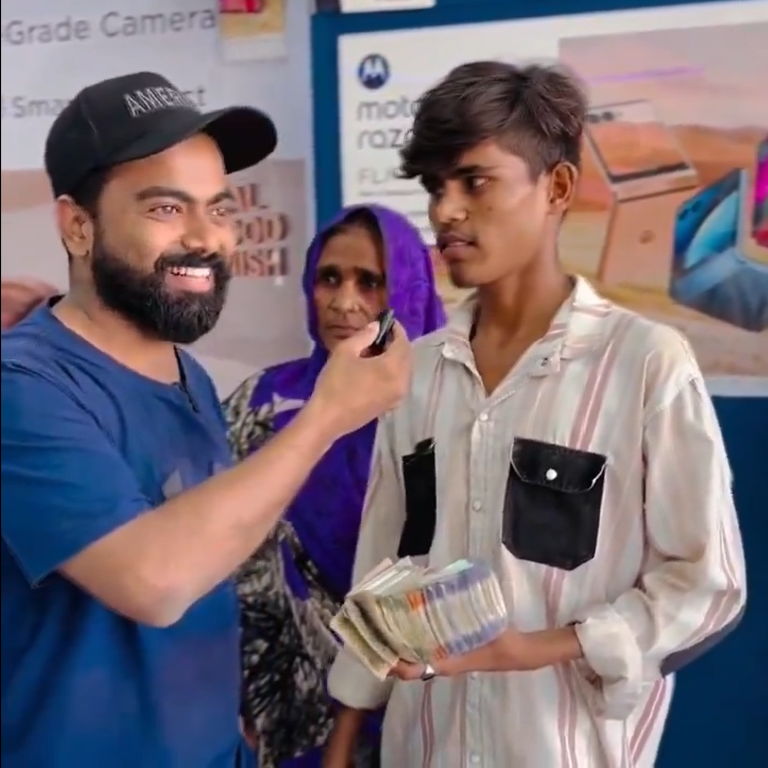Flower Seller Mom Buys iPhone for Son Who Stopped Eating, Faces Backlash

A recent video has gone viral, showing a dramatic scene where a young boy, refusing to eat unless given an iPhone, eventually receives money from his mother to buy the device. The mother, who sells flowers outside a local temple to support her family, acquiesced to her son’s demand after he stopped eating.
The video, shared by the X user handle @Incognito_qfs, has garnered over 600,000 views and 10,000 likes, sparking a heated debate on social media about parenting and generational expectations. Many viewers are weighing in on the appropriateness of the mother’s response and the broader implications of such behavior.
This nithalla boy stopped eating food and was demanding iPhone from her mother.
His mother finally relented and gave him money to buy iPhone. She sells flowers outside a mandir.
Too much love will always destroy children. Parents should know where to draw the line.
This is… pic.twitter.com/govTiTKRAF
— Incognito (@Incognito_qfs) August 18, 2024
The clip has prompted strong reactions. One user, named unitedhindus, criticized the mother for her decision, stating, “Shameful!!! Mom should have hit him with slippers instead of giving him money and let him starve. These selfish individuals would not hesitate to exploit their parents for their own gain.” Another commenter, Ragini, expressed frustration, remarking, “Sorry aunty… Tomorrow, that jobless kid will ask for a sports bike, and you’ll sell your land to get it. Then he’ll do stunts with the bike and injure himself. What will you sell to treat him? Four days without food won’t kill him.”
The video highlights a growing concern about the impact of excessive indulgence on children and the boundaries of parental love. Many are questioning where parents should draw the line in accommodating their children’s demands and whether such behavior is detrimental in the long run.
The discussion continues as users debate the role of discipline and the consequences of giving in to every request, reflecting a broader societal conversation about parenting practices and their impact on young people.








